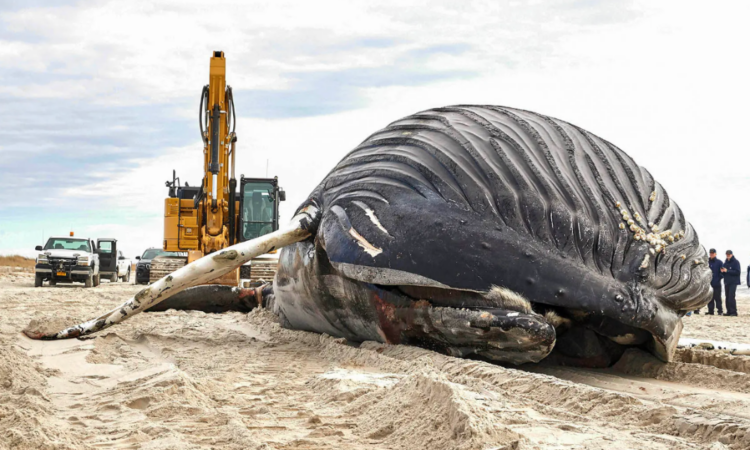A humpback whale was found washed ashore at Lido Beach in Nassau County, New York.
Andrea Gomez of NOAA said, “So this whale’s name is Luna, and we have been following the whale for a while. It was last sited alive in September of 2022.”
On Monday, Emergency crews tried to figure out the best way to safely dispose of the 35-foot-long whale.
Dr. Olaf Meynecke of Griffith University’s coastal and marine research center explained why washed-up whales are so dangerous. “If cetaceans are left onshore where they have stranded and died, their decomposition can pose a biohazard risk. The removal of the animals is a major issue and something that we kind of forget once a rescue mission is over.”
In warmer climates, the decomposition of dead whales can cause explosions.
“If the rest of the body is still intact – if the outer layer, the blubber, is still intact and not broken up – then it can lead to an explosion,” Meynecke added.
The discovery of the dead whale on Lido Beach has brought attention to the issue of whale deaths in the waters off the coast of New York and New Jersey. In recent years, there has been a noticeable increase in the number of deaths in the area. There have been about 10 dead humpbacks within two months.
“This is by far the largest,” Hempstead Town Supervisor Don Clavin said. “The crews that have been here for almost two decades have never seen a whale this size.”
Related Story: Miami Beach Imposes Curfew and Closures to Control Spring Break Crowd
The cause of the humpback whale’s death is still under investigation, but it is likely that it was the result of human activity. Whales are vulnerable to ship strikes and entanglement in fishing gear, both of which can lead to serious injury or death. In addition, the pollution in our oceans can also have a harmful effect on marine life.
On Tuesday, scientists took samples for a necropsy Tuesday to determine its death. The process could take weeks or months to determine.
“An accident, maybe, or she was sick,” Cara Patino said. “My heart is really sad for the whale.”















